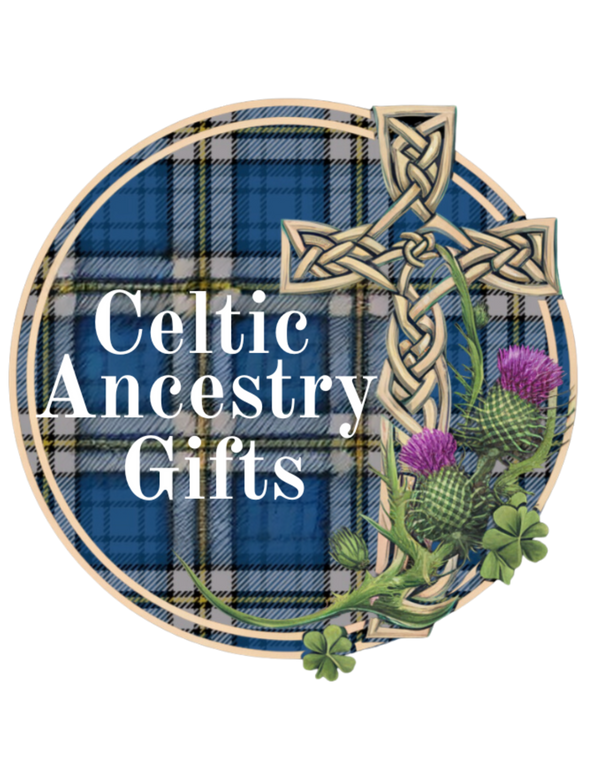
A Deep Dive into the History of Clan Douglas: From Medieval Might to Modern Legacy
Share
A Deep Dive into the History of Clan Douglas
The Douglases, one of Scotland's most prominent and influential clans, boast a history as rich and complex as the tartans they're known for. Their story spans centuries, marked by both glorious triumphs and bitter conflicts, shaping the very landscape of Scottish history. This article explores the clan's fascinating past, its significant connections, landmarks associated with it, notable figures, and its enduring presence in the modern world. From their Norman origins to their enduring impact on Scotland's cultural landscape, the Douglas story is a captivating tapestry woven with threads of power, ambition, loyalty, and betrayal. We will delve into the key moments that defined this powerful clan, examining their strategic alliances, bitter rivalries, and the lasting legacy they left on the Scottish landscape and its people.
Norman Origins and Early Scottish History: Establishing a Foothold in the Land
The precise origins of the Douglas family are still debated amongst historians, but the generally accepted narrative traces their roots back to Normandy in France. William de Douglas, the progenitor of the family, is believed to have arrived in Scotland sometime in the 12th century, likely accompanying some of the Norman influences that were becoming increasingly prevalent in the country at that time. While the specifics are elusive, what is clear is that the Douglases quickly became established within the intricate social and political landscape of Scotland. Through a combination of strategic marriages, astute political maneuvering, and military prowess, they steadily gained influence and amassed wealth, acquiring considerable landholdings and strategically positioning themselves to become key players in the power structures of the era.
Their early history is intertwined with the tumultuous events shaping Scotland during the High Middle Ages, witnessing the rise and fall of numerous kingdoms and the continuous struggle for dominance among the nobility. The Douglases, with their acumen and military skills, were adept at navigating these treacherous waters, forming alliances and solidifying their power base. This period saw them consolidating their holdings, establishing strategic castles, and forming important alliances that would prove crucial in their future success. While the precise details of their early dealings remain partly shrouded in mystery, it's apparent that they quickly established themselves as a force to be reckoned with, laying the groundwork for the significant role they would play in Scottish history for centuries to come.
The Wars of Scottish Independence: A Time of Valor and Betrayal
The late 13th and early 14th centuries were a period of intense upheaval in Scotland, characterized by the Wars of Scottish Independence. The Douglases were deeply involved in these conflicts, playing a pivotal role in the fight for Scottish freedom. The clan's loyalty, however, wasn't always consistent; their allegiances shifted depending on the prevailing political climate, reflecting the complexity and fluidity of the power dynamics at play. The figure of the "Black Douglas," Archibald Douglas, embodies this complexity. His name is synonymous with unwavering loyalty to Robert the Bruce, the renowned Scottish king, yet his actions also reflected the calculated pragmatism of the Douglases as they sought to maintain and expand their own power and influence.
Their involvement in the Wars of Scottish Independence involved numerous battles, strategic alliances, and political machinations. Their strategic castles served as vital strongholds, resisting attacks by the English and acting as centers for rallying Scottish forces. Their military leadership proved crucial in several key victories, shaping the course of the war and influencing the outcome. This period cemented the Douglases’ place among the most influential families in Scotland. Their legacy from this era was not one of simple, unwavering loyalty, but rather a complicated tapestry woven with threads of both fierce patriotism and calculated self-interest, demonstrating the nuanced reality of political maneuvering in times of war.
Key Clan Connections and Rivalries: A Complex Web of Alliances and Conflicts
Throughout their history, the Douglases were known for their strategic alliances with other powerful families and clans in Scotland. These connections proved essential for their survival and growth, providing access to resources, manpower, and political support. However, this intricate network of relationships was not without its tensions. The Douglases' rise to power inevitably resulted in conflicts and rivalries with other ambitious families vying for influence and dominance in Scotland. Their relationship with the Scottish crown was particularly fraught with tension, fluctuating between periods of unwavering support and open rebellion, depending on the perceived advantages to be gained.
One of their most significant and enduring rivalries was with the powerful Stewart family, who eventually rose to become kings of Scotland. This competition played out across generations, influencing the political and military landscape of the nation for centuries. Their clashes involved power struggles, territorial disputes, and bloody conflicts, shaping the destiny of Scotland and leaving a lasting imprint on the historical narrative. These rivalries weren’t simply confined to Scotland; they also extended to interactions with English nobility and involved participation in larger European conflicts, reflecting the Douglases' position within a wider network of power and influence.
Landmarks and Estates: A Legacy Etched in Stone and History
The Douglases left an enduring mark on the Scottish landscape, their presence manifested in numerous castles, estates, and battlefields that still stand as tangible reminders of their power and influence. Douglas Castle, a majestic ruin steeped in history, stands as a powerful symbol of their legacy, its imposing structure echoing the clan's ambition and strategic acumen. It's not merely a building but rather a testament to their military strength and political dominance, acting as a center of power and influence throughout the clan's reign.
Beyond Douglas Castle, many other locations bear witness to the Douglases' historical presence. From strategically positioned fortresses to sprawling estates, these sites offer insights into their way of life, and the power structures they held. Exploring these landmarks provides a physical connection to their history, allowing us to visualize their past and understand the impact they had on the landscape and the communities that lived there. These ruins, many of which remain standing or partially standing, are more than just stones; they tell the silent stories of the Douglases and offer glimpses into their power, wealth, and ambition.
Notable Douglases: From Warriors to Kingsmakers
The Douglas family produced a multitude of notable figures who played pivotal roles in Scottish history, shaping the nation's destiny and leaving an enduring legacy. Archibald Douglas, the "Black Douglas," remains a legendary figure, renowned for his military skills and unwavering loyalty to Robert the Bruce. His battlefield prowess and strategic thinking were instrumental in the Wars of Scottish Independence. But he is far from the only significant Douglas; the clan produced powerful earls, dukes, and even regents who wielded significant influence, shaping Scottish politics and leaving their imprint on generations to come.
These individuals, whether celebrated for their heroism or condemned for their ruthlessness, contributed significantly to the complex narrative of the Douglas clan. Their stories, both famous and lesser-known, highlight the successes, failures, and complexities of the family, reflecting the broader dynamics of Scottish society during their era. Their lives often involved intense rivalries, political maneuvering, and military campaigns, leaving behind a rich legacy of both heroism and tragedy. These individuals, through their actions and achievements, embody the spirit of the clan and their enduring influence on Scottish history.
The Douglas Clan Today: A Heritage that Endures
While the feudal power of the Douglases is a relic of the past, the clan's spirit and legacy continue to resonate in the modern world. Descendants maintain their connection to their heritage through various organizations, gatherings, and shared experiences. Many proudly trace their ancestry back to this influential clan, finding a sense of belonging and connection to a rich and complex past. The Douglas name remains synonymous with strength, resilience, and a proud heritage, connecting individuals across time and generations.
Celebrate your Scottish heritage with the Douglas Clan Crest Tartan Scottish Woven Blanket. This cozy and beautiful blanket features the vibrant Douglas clan crest and motto "Never Behind." It's the perfect heirloom for your family and a wonderful gift rooted in tradition. 
For a more everyday reminder of your heritage, consider the Douglas Clan Never Behind Jamais Arriere Mug. This mug proudly displays the Douglas clan crest and the motto "Never Behind" (Jamais Arriere), showcasing the clan's enduring spirit and resilience. It makes a perfect gift for anyone with Scottish roots or anyone who admires the enduring strength and history of the Douglas clan. 
Conclusion: A Legacy that Continues to Inspire
The legacy of Clan Douglas continues to inspire and fascinate in 2025, a testament to their enduring impact on Scotland's history and culture. Their story, spanning centuries and marked by both triumphs and tragedies, serves as a captivating reminder of the complex interplay of power, ambition, and loyalty that shaped the nation. From their Norman origins to their modern-day descendants, the Douglas name remains a symbol of resilience and a rich, compelling heritage.

